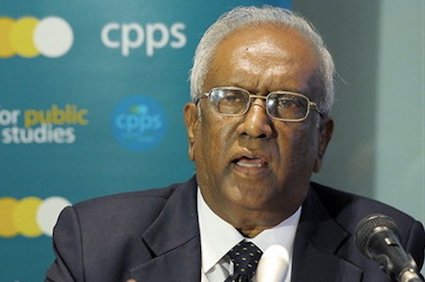We can start with village elections

I BELIEVE that many Malaysians are still surprised and taken aback by the unexpected announcement by Prime Minister Tun Dr Mahathir Mohamad that local elections will not be held.
The people ask why and for how long will we be denied to vote for our local council representatives?
He also did not give a full explanation or provide any deep justification for the removal of such a fundamental right in any democracy and for the denial for our democracy to further mature and develop.
Hence the prompt press statement by the Gabungan Bertindak Malaysia (GBM) entitled, Start village elections to allay Malays fears, is most welcome.
But it is a national matter. It relates to all races and is not exclusive. So why do we need to differentiate Malays from non-Malays and indeed all Malaysians, in this vital aspect of democracy and good governance at the ground level?
However, as GBM has rightly pointed out, the “absence of local elections is harming the interests of Malays who now make up the majority in most cities and towns”.
I would add that non-Malays will also suffer and lose out. All Malaysians will suffer from not having local elections, for the following reasons:
First, citizens’ human right, fundamental freedom and the basic need to enjoy the right to vote for his or her representative at the very foundation of our democracy at grassroots levels will be denied. Is that what we need or want?
Hence, we need a thorough clarification why our basic rights to vote for local councils will continue to be rejected?
Second, it’s contradictory to encourage general elections and to seek to improve the Election Commission, and at the same time reject local council elections.
Would the same logic be used someday to reject general elections? Would some leaders use the argument of “the fear of ethnic conflicts” to reject general elections when politically expedient at some time?
Third, how does racial consideration come into the discussion as to whether we have or we reject local elections? Are there are no racial feelings shown at the ballot box for the federal and state elections that have been carried out for 14 elections since Merdeka?
So why are racial considerations now being used as some kind of reason for rejecting local elections.
Fourth, we all know that the quality of public and community services provided by local government councils are not first rate. We are also aware that local problems like poor garbage collection, street lighting, transport, clogged drains, dirty wet markets, the neglect of the environment and inefficiencies are characteristic of local governments.
Elected and not just appointed local council officials will be more accountable to the local residents if the officials are elected. If they are unsuitable or corrupt they can be thrown out of office. There can be better checks and balance on their performance to serve the public better.
Fifth, the public and especially the voters need more and better justification for the new government’s rejection of local elections, in the interests of good governance and fairness. We have been looking forward to more transparency, integrity, efficiency, national unity and closer collaboration between the new government and the rakyat. We hope we now get it.
The public’s legitimate and high expectations will be badly let down, if we are not convinced that the new government’s unfortunate and sudden decision to reject local elections are not met, with more explanation, justification and care for the welfare of the rakyat.
Like many Malaysians, I appeal to the government to review the decision to reject local elections.
Alternately, the government can postpone the holding of local elections within a limited time-frame, but please hold local elections, well before the next general election.
We can start the election process with village elections as proposed by the GBM.
Tan Sri Ramon Navaratnam
Chairman
Asli Centre for Public Policy Studies

